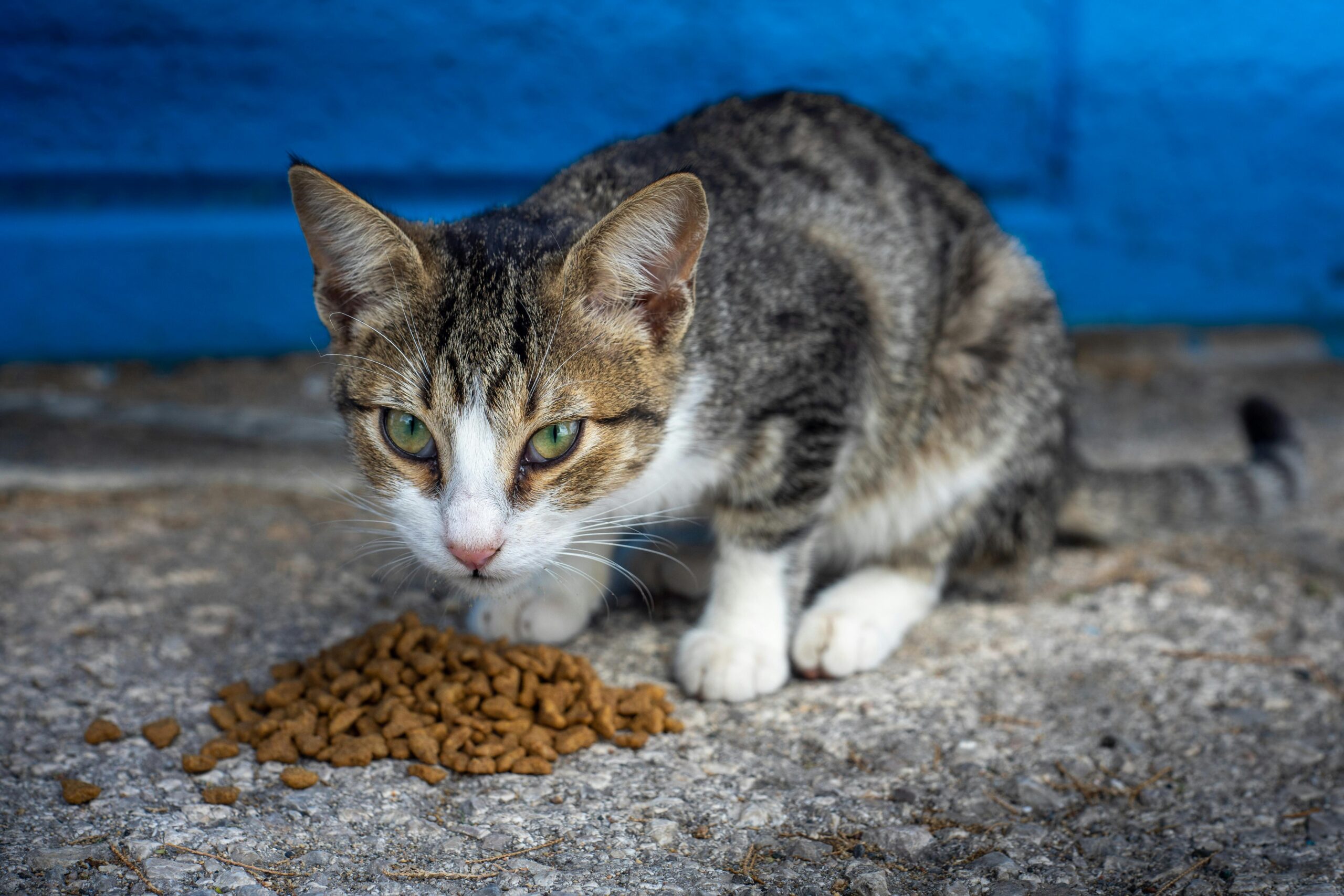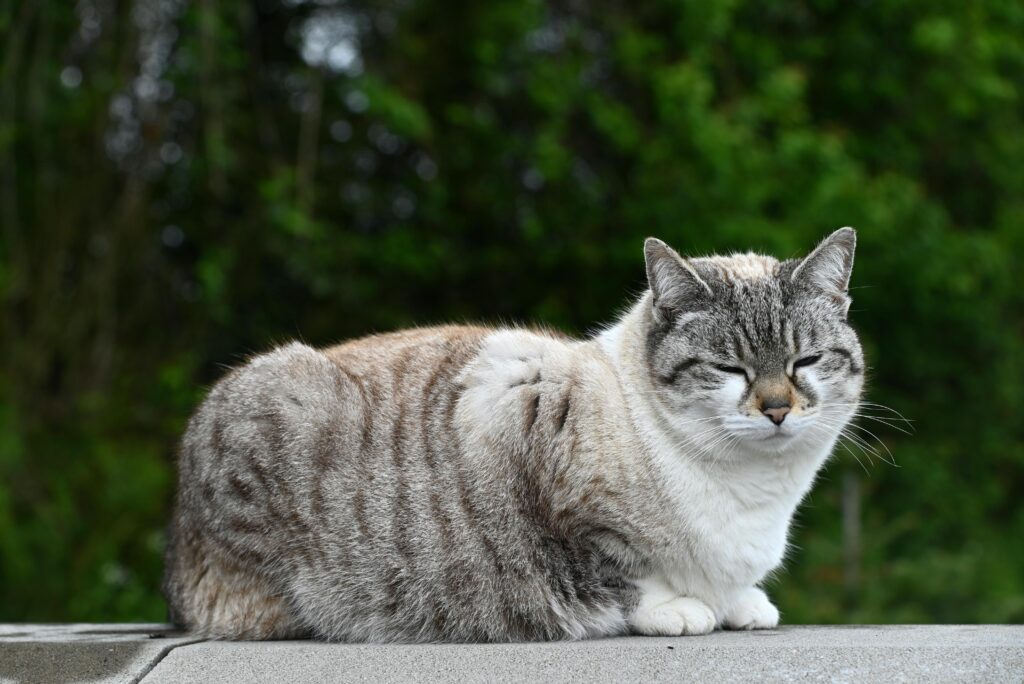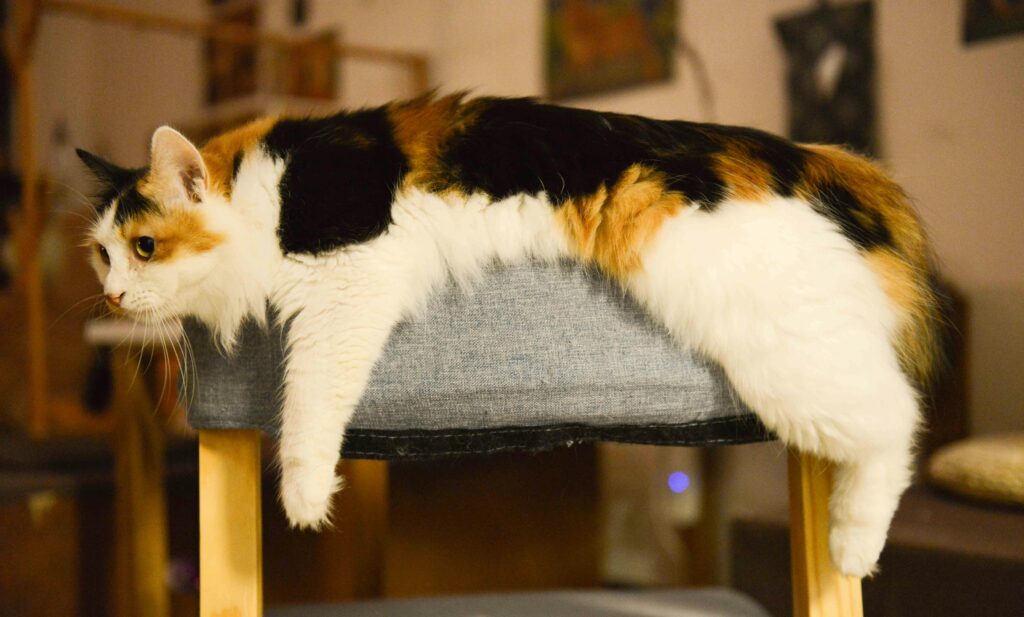Cats try to bury their food as an instinctive behavior to hide the scent from potential predators and save it for later. This behavior harkens back to their wild ancestors who would bury their prey to conceal it from other animals.
By doing so, cats feel more secure and can return to their meal without drawing attention from potential threats. This instinct can also stem from the fact that cats are solitary hunters and may be compelled to save food for future consumption.
Therefore, if your cat is trying to bury her food, it’s likely a natural and instinctive behavior influenced by her ancestral instincts. Understanding this behavior can help you better cater to your feline friend’s natural inclinations and ensure she feels comfortable during meal times.
Instinctual Behavior
Understanding your cat’s behavior can be a fascinating aspect of pet ownership. One perplexing behavior that many cat owners encounter is their feline friend trying to bury their food. This seemingly peculiar action is rooted in your cat’s instinctual behavior, harking back to their wild ancestors.
Natural Survival Instinct
Cats have a natural survival instinct ingrained in their DNA. When they bury their food, it’s an innate behavior aimed at protecting and preserving their valuable resources. In the wild, this action would help conceal the scent of their leftover food from potential predators, safeguarding it for later consumption. This instinct is deeply embedded in their psyche, and even domesticated cats may exhibit this behavior as a remnant of their primal survival instincts.
Prey Concealment
Another factor influencing this behavior is related to a cat’s instinctual prey concealment. In the wild, cats would hunt and then hide their prey to consume later. Burying their leftover food mimics this behavior, as they instinctively feel the need to hide or cover up their food to protect it from other animals or to ensure a future meal. It also serves as a way to avoid drawing attention to their food source, helping to maintain a low profile in their environment.
Historical Context
The historical context of why your cat tries to bury her food can be traced back to their wild ancestral behavior and evolutionary adaptation. Understanding these aspects provides valuable insights into your cat’s instincts and actions.
Wild Ancestral Behavior
Cats have inherited the behavior of burying food from their wild ancestors. In the wild, cats would bury their food to hide it from potential predators, ensuring their survival. This instinct has been passed down through generations.
Evolutionary Adaptation
Burying food also serves as an evolutionary adaptation for cats. By burying their food, cats mimic the act of covering prey in the wild, preserving it for later consumption. This behavior is ingrained in their DNA and is a natural survival instinct.
Sensory Factors
Cats try to bury their food due to sensory factors, including their strong instinct to hide leftover food from potential predators. This behavior is rooted in their natural hunting instincts and is common among domesticated cats.
When it comes to understanding why cats exhibit certain behaviors, sensory factors play a crucial role. Even though domesticated cats do not have to hunt for food, their instincts are deeply ingrained, and they rely on their senses to navigate the world around them. By exploring sensory factors, we can gain insight into why cats try to bury their food, even when it’s served in a bowl right in front of them.
Sensitive Smell
Cats have an incredibly sensitive sense of smell, which is far more powerful than our own. In fact, a cat’s olfactory system is 14 times stronger than that of a human. This heightened sense of smell allows cats to detect odors we can only imagine. When it comes to their food, cats may try to bury it as a way to conceal the scent. This behavior stems from their instinctual urge to hide any potential prey from other predators. Additionally, cats are known to be fastidious animals, and they naturally groom themselves to maintain cleanliness. By attempting to bury their food, they may be trying to eliminate any lingering scent that could attract unwanted attention.
Texture Preference
Texture preference is another sensory factor that can explain why cats try to bury their food. A cat’s paw pads are highly sensitive, as they contain numerous nerve receptors. When a cat scrapes or scratches at the ground after eating, it could be an attempt to cover the food with the surrounding material, such as soil or litter. This behavior might be a way for cats to mimic the feeling of burying their prey in the wild. Some cats may also have specific texture preferences when it comes to their food. For instance, if a cat prefers wet food over dry kibble, they may attempt to bury the food that they find less appealing. Cats are known to be highly selective eaters, and their texture preferences can vary from one individual to another. In conclusion, sensory factors such as sensitive smell and texture preference can help us understand why cats try to bury their food. Their heightened sense of smell and instinctual behaviors drive this burying behavior, which stems from their natural instincts as hunters. By acknowledging and understanding these sensory factors, we can provide a more enriching and satisfying feeding experience for our feline friends.
Environmental Triggers
Cats instinctively try to bury their food due to environmental triggers, such as the instinct to hide their scent and hide any potential prey from other predators.
Understanding why your cat exhibits certain behaviors, such as trying to bury her food, requires examining environmental triggers. Cats have specific instincts and behaviors that they employ to survive and thrive. In a domestic environment, these instincts can manifest in unexpected ways. When it comes to burying food, two important environmental factors play a significant role: perceived competition and security and safety.
Perceived Competition
Cats are natural hunters, and even though they may receive regular meals from their human companions, their instinct to protect their resources remains intact. When a cat tries to bury her food, it may be a result of perceiving competition from other animals in the household, even if there aren’t any. This behavior stems from their primal instinct to prevent other predators from stealing their meals. By attempting to bury her food, your cat is merely trying to secure and hide it from potential rivals.
Security And Safety
Another reason why your cat may try to bury her food is related to her need for security and safety. In the wild, cats would eat their prey quickly to avoid attracting other predators. Burying leftover food can help them ensure that they are not leaving any traces behind that might threaten their safety. This behavior also masks their presence from potential predators who could identify their location through the smell of the food.
If you notice your cat engaging in this burying behavior, it’s essential to create an environment that makes her feel secure. Provide separate feeding areas for each pet in your household to minimize any perceived competition. Additionally, ensure your cat has a quiet and undisturbed feeding area where she feels safe and protected. By addressing these environmental triggers, you can help your cat feel more at ease during mealtimes and reduce the need to bury her food.
Health-related Implications
Cats bury their food for various reasons, and these behaviors can have health-related implications that owners should pay attention to. Understanding the underlying medical conditions and the role of stress and anxiety in your cat’s behavior is crucial.
Underlying Medical Conditions
Some cats may try to bury their food due to underlying medical conditions. Issues like dental problems, gastrointestinal discomfort, or even respiratory infections can cause your cat to exhibit such behavior. It’s essential to consult with your veterinarian to rule out any potential health issues.
Stress And Anxiety
Stress and anxiety can also play a significant role in a cat’s food burying behavior. Changes in your cat’s environment, routine, or the presence of other pets can trigger stress, leading to this instinctive action. Providing a calm and secure environment for your cat can help alleviate these feelings.
Alternative Explanations
While the instinctual explanation for why cats try to bury their food is rooted in survival and ensuring that they have future meals to rely on, there are also alternative reasons behind this behavior. Understanding these alternative explanations can provide additional insight into your feline friend’s behavior.
Territorial Marking Behavior
Cats perceive their feeding area as part of their territory, and the instinct to bury their food can be a form of marking their space. By covering their food, they may be trying to conceal the scent, thereby preventing potential competitors from identifying a food source within their territory. This behavior is often observed in multicat households where individuals may feel the need to protect their food from others.
Routine And Habit
Cats, being creatures of habit, may bury their food as part of a routine dating back to their wild ancestors. In the wild, a cat might bury excess food to return to later, a behavior ingrained deeply in their instincts. Even though domestic cats have access to regular meals, this instinctual ritual can still persist, especially in more resourceful or independent felines.
Managing The Behavior
Cats bury their food instinctively as a way to protect and hide their leftovers from potential threats. This behavior can be perplexing for many cat owners, but there are proactive strategies you can implement to manage this behavior.
Feeding Strategies
Use shallow dishes: Providing your cat with a shallow dish for their meals can limit their ability to bury their food effectively. This simple change can discourage the burying behavior and make it less tempting for your cat.
Schedule regular mealtimes: Establishing a consistent feeding schedule can help reduce the urge for your cat to bury their food. By feeding your cat at set times each day, they are less likely to feel the need to hoard or hide their meals.
Environmental Enrichment
Introduce puzzle feeders: Incorporating puzzle feeders can engage your cat’s natural hunting instincts and provide mental stimulation during meal times. This enrichment activity can redirect their burying behavior towards solving the puzzle for their food.
Design a dedicated feeding area: Creating a specific feeding space for your cat can help reduce the urge to bury their food. This area should be separate from their litter box and other high-traffic areas, providing a calm and secure place for mealtime.
When To Seek Veterinary Advice
If your cat displays persistent unusual behavior such as trying to bury her food constantly, it might be a sign of an underlying health issue.
Persistent Unusual Behavior
Noteworthy signs include avoiding food, unusual aggressiveness, excessive grooming, or isolation.
Sudden Changes In Behavior
Be cautious if your cat suddenly becomes disinterested in her food or loses her appetite.

Frequently Asked Questions Of Why Does My Cat Try To Bury Her Food?
Why Do Cats Try To Bury Their Food?
Cats have natural instincts to hide food to protect it from predators and save it for later consumption. This behavior dates back to their wild ancestry when they needed to secure their food sources.
Is It Normal For My Cat To Bury Her Food?
Yes, it’s normal for cats to bury their food. This instinctual behavior is a way for them to ensure the safety of their food and maintain their territory, even if they’re domesticated pets.
How Can I Encourage My Cat To Stop Burying Her Food?
Provide smaller portions of food more frequently throughout the day to mimic hunting behavior. Use shallow dishes to make burying food more challenging and engaging for your cat.
What Should I Do If My Cat Refuses To Eat Uncovered Food?
If your cat still insists on burying her food, consider offering a different type of dish or bowl that doesn’t allow for burying behavior. Mix in fresh food to entice her to eat without burying.
Conclusion
Cats bury food instinctively due to their hunting behavior. This natural instinct helps them hide leftovers and avoid predators. By understanding this behavior, we can appreciate our feline friends’ wild ancestry. Remember, providing a calm feeding environment can help alleviate this common cat behavior.


